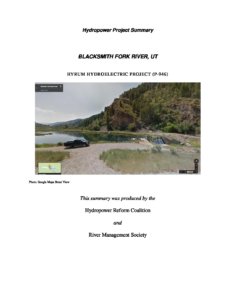30 Years of Hydro Reform!
 This year, we’re celebrating the 30th anniversary of the Hydropower Reform Coalition! Alongside our partners, the HRC has worked to protect rivers, watersheds, and communities during an era of complex changes across the national hydropower landscape. We take this opportunity to remember some of the highlights from our early years.
This year, we’re celebrating the 30th anniversary of the Hydropower Reform Coalition! Alongside our partners, the HRC has worked to protect rivers, watersheds, and communities during an era of complex changes across the national hydropower landscape. We take this opportunity to remember some of the highlights from our early years.
The HRC was formed in May of 1992, when key people from several organizations including American Rivers, American Whitewater, Natural Heritage Institute, National Wildlife Federation, Conservation Law Foundation, and others working on hydropower met at the American Rivers office in Washington DC, back then located above Trover Bookstore on Pennsylvania Avenue. The focus of the meeting was the upcoming deluge of hydro project relicensings, or the “class of 1993” as it would come to be known. The group quickly decided to coordinate their efforts on hydropower licensing, leaving the meeting with the decision to form the Hydropower Reform Coalition. Other organizations including New England FLOW, Trout Unlimited, Appalachian Mountain Club, and New York Rivers United also joined as founding members or shortly thereafter.
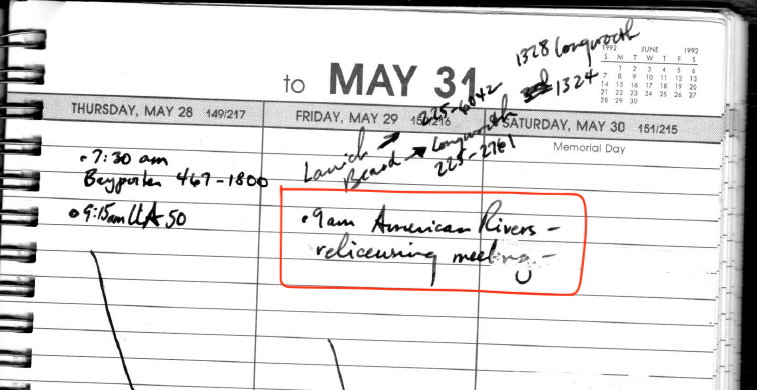
Calendar entry showing the relicensing meeting from May 29, 1992. Photo courtesy of Richard Roos-Collins, founding HRC member with the Natural Heritage Institute and now the coalition’s General Counsel with the Water Power Law Group.
The focused and coordinated efforts of coalition members saw immediate results. Conditions were improved and habitats were restored at rivers across the country and particularly in the northeast, where a lot of these projects were. The HRC helped advocate for and develop the new alternative licensing process (ALP) that built in collaborative development of scientific studies and negotiation of license conditions – a big step forward from the previous process of having lawyers battle out license conditions in the courts.
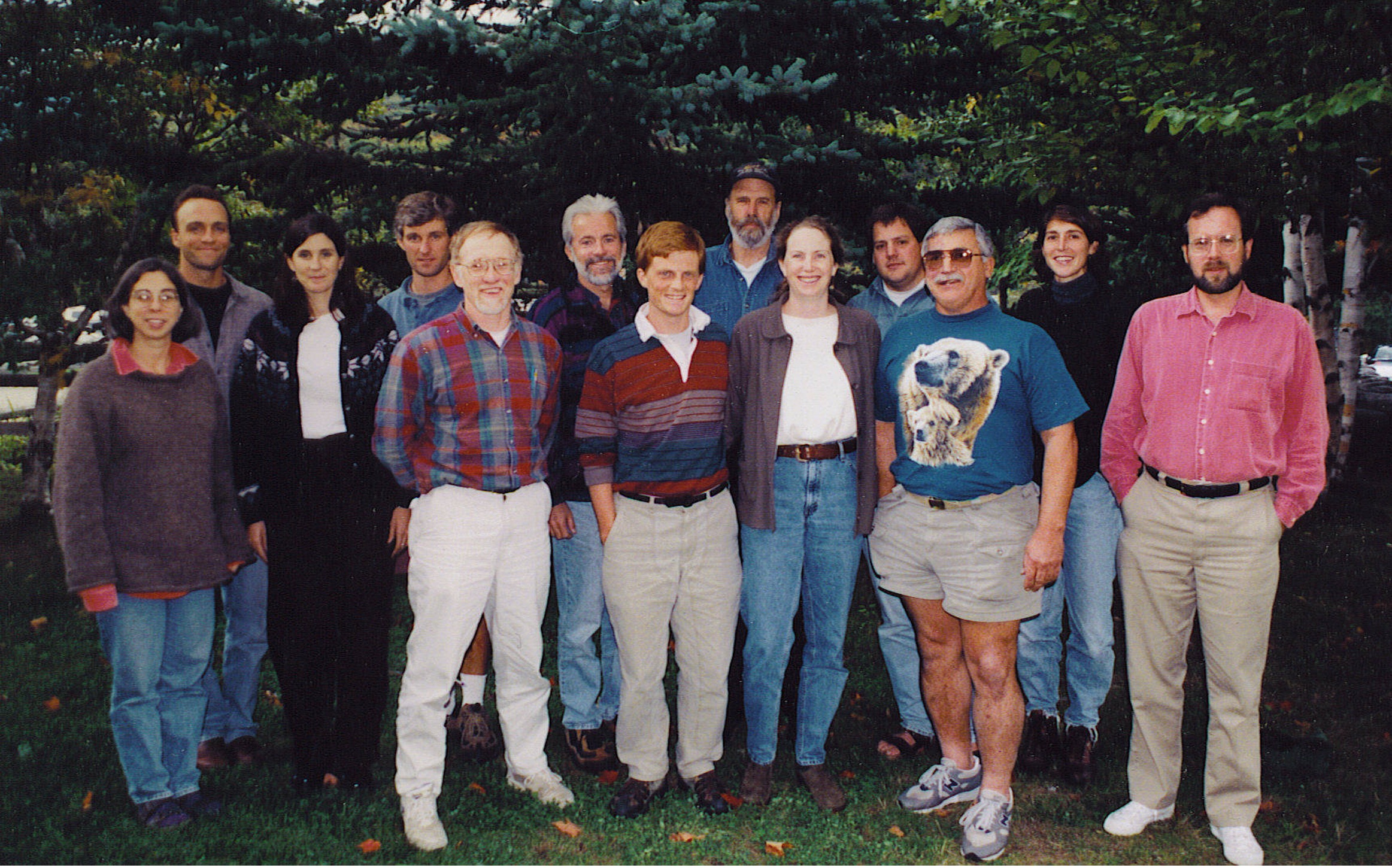
HRC members circa 1998: Carol Blasi (Conservation Law Foundation), Rob Masonis (American Rivers), Maureen Rose (Friends of the River), John Gangemi (American Whitewater), Ken Kimball (Appalachian Mountain Club), ??, Andrew Fahlund (American Rivers), Ron Wilson (Earthjustice?), Margaret Bowman (American Rivers), Jeff Reardon (Trout Unlimited), Tom Christopher (New England FLOW), ??, Richard Roos-Collins (Natural Heritage Institute). Photo courtesy of Margaret Bowman.
Coalition members, together with partners, have led in the development and adoption of new approaches to hydropower licensing that have improved conditions for rivers and communities. On the Deerfield River in 1994, HRC members New England Flow, Trout Unlimited, American Rivers, American Whitewater, Appalachian Mountain Club, Conservation Law Foundation, and Deerfield River Watershed Association negotiated the first major relicensing agreement and the second agreement ever signed in the US. This settlement agreement approach provided a model for bringing together diverse interest including fisheries, wildlife habitat, land protection, water quality, and recreation as well as FERC staff and project owners.
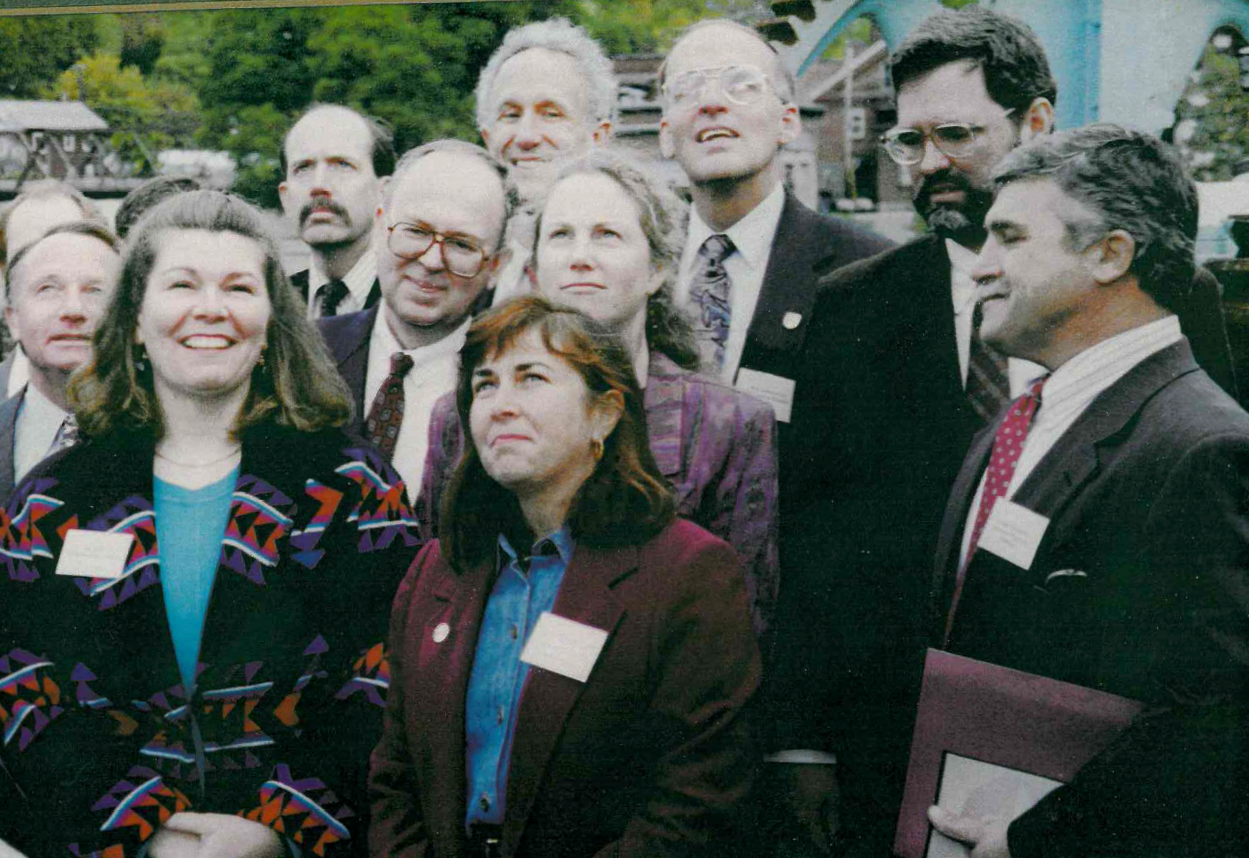
Deerfield Settlement Signatories, Oct. 4, 1994 1st row (left to right): Jane Pierce (FRCOG), Bambi Miller (Deerfield Compact) 2nd row: ? (EPA), John Rowe (CEO of NEP), Margaret Bowman (AR), Tom Christopher (AW) 3rd row: Don Pugh (TU), Andy Fallender (AMC), Ron Lambertson (USFWS), Rick Hudson (NE FLOW). Photo courtesy of Tom Christopher.
On the Beaver River in New York, a settlement agreement was signed in 1995 that included conditions for all eight dams on the river, securing basin-wide benefits through a single license. On the Black River, the 1994 settlement agreement and subsequent license included scheduled recreational releases, transforming the river below the dams into a recreational boating destination and inspiring the city of Watertown to invest in its riverfront.
In 1994, FERC issued a surprise decision that a relicensing application could be denied and that the Commission can order a dam be removed at licensee expense. Three years later, FERC exercised this authority by ordering the removal of Edwards Dam on the Kennebec after finding that the benefits of a free-flowing river outweighed the benefits of the dam. The 1998 settlement agreement – signed by HRC members Natural Resources Council of Maine, American Rivers, Atlantic Salmon Federation, and Trout Unlimited as well as other members of the Kennebec Coalition – led to removal of the Edwards Dam in 1999, paving the way for a new era of dam removal.
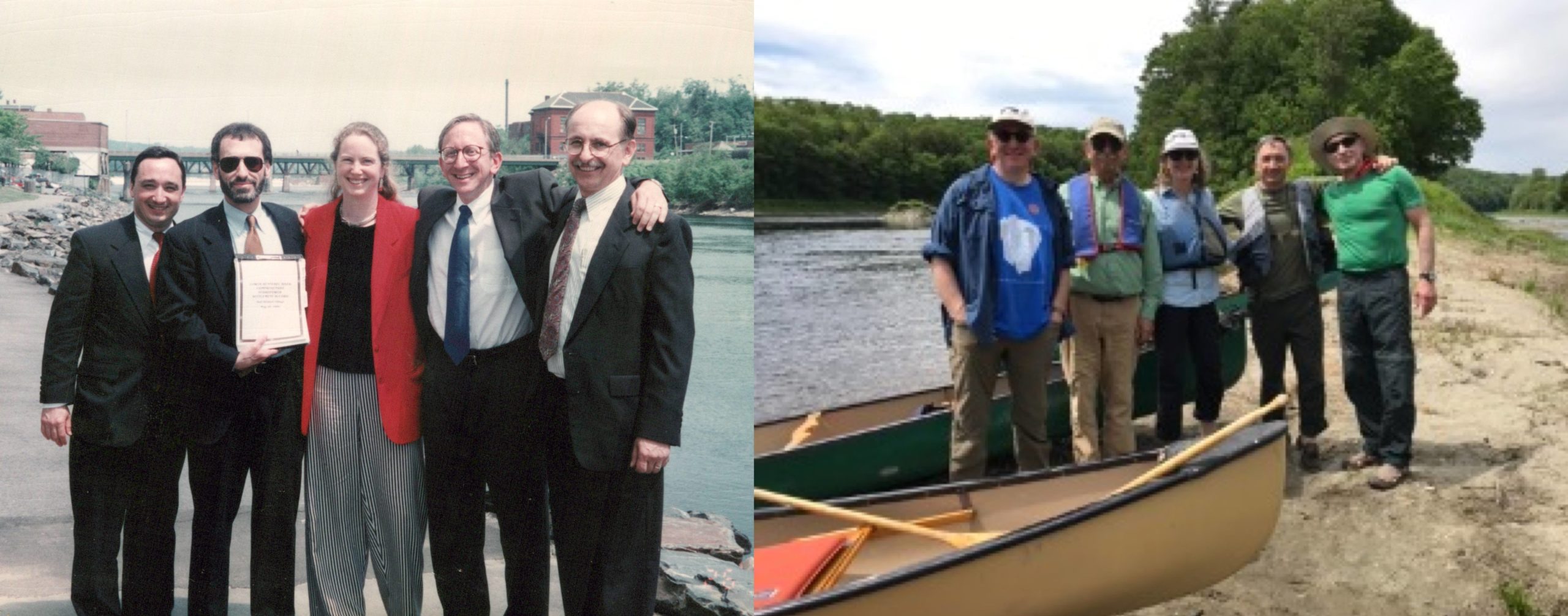
Left: Edwards Dam Team at settlement signing, 1998 (Dan Squire, Ron Kreisman, Margaret Bowman, Peter Kirsch, Steve Brooke) Right: Same group canoeing the restored stretch of the Kennebec River, July 2019 (20th reunion). Photos courtesy of Margaret Bowman.
Tom Christopher, Executive Director of New England FLOW and founding member of the Hydropower Reform Coalition, recounts the power of the Edwards Dam removal on the Kennebec River.
Since the beginning, we have worked together to protect rivers and communities affected by hydropower in the halls of Congress and at FERC as well as in individual licensings. We have restored thousands of river miles, improved recreation opportunities and river access, and advocated for smart policies and legislation. Here’s to the next 30 years.
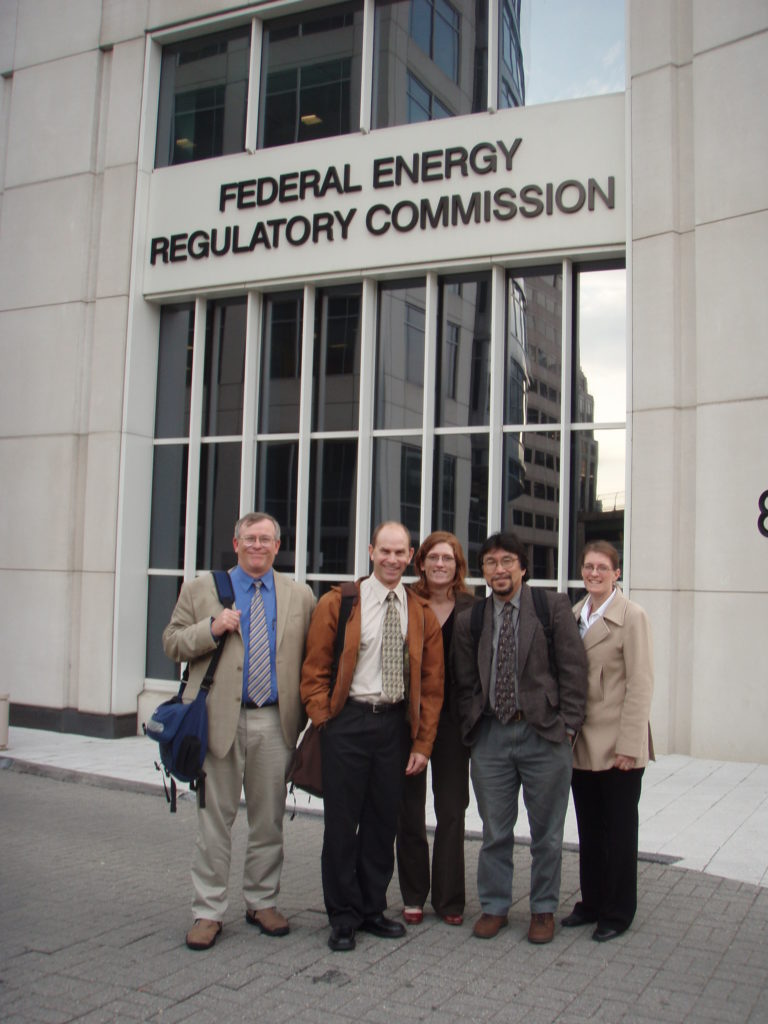
Kevin Lewis (Idaho Rivers United), Dave Steindorf (American Whitewater), Kate Miller (Trout Unlimited), Keith Nakatani (California Hydropower Reform Coalition), Kelly Catlett (Friends of the River) at FERC in 2007. Photo courtesy of Kelly Catlett.
“A major strength of the HRC is that it truly embodies how a coalition can work. The community, support, guidance, and solidarity of the organization is unique and provides a robust platform for engaging with complex issues related to hydropower reform and river conservation.”
Kevin Lewis – Idaho Rivers United, HRC Pacific Northwest Chair

